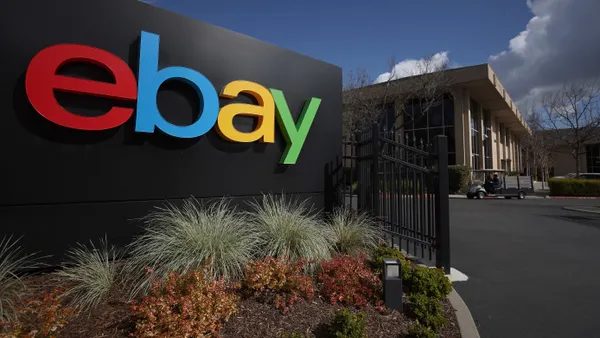Dive Brief:
- Walmart has developed a technology called Eden designed to inspect fruits and vegetables for defects, and is said to be able to predict the exact date when they will spoil, according to a company blog post by Parvez Musani, vice president of supply chain technology.
- The retailer said the savings in food waste due to the technology will amount to $2 billion over the coming five years. Eden was deployed to 43 food distribution centers in January 2017, and since that time has saved Walmart $86 million.
- The Eden technology depends largely on data from the supply chain. For example, it tracks storage area temperatures, temperature control devices on trucks, and eventually, will use data from drones flying over farms that monitor temperatures, and other factors.
Dive Insight:
Shoppers frequently make their harshest and sometimes final decisions about the desirability of a grocery store based on the quality and freshness of its produce. It’s often their first and most lasting impression. No matter how big or new the store, how "natural" its reputation, how friendly the employees, if the produce is bad the customer is likely to go elsewhere.
Waste is also a big issue, but a store with the reputation for good produce is better able to minimize that problem.
Sometimes this is just a matter of store traffic and product velocity — a reputation for bad produce can become a vicious cycle — but if something can be done about deficient produce coming to the store, it must be. Walmart is using technology to address this perennial challenge, and to reduce waste at the same time.
The Eden project grew out of an internal competition – or “hackathon” – among engineers on the retailer’s fresh merchandising teams. “Our goal was to figure out the best way to keep track of food freshness all the way from the farms to our stores,” wrote Musani.
The winning team built a digital library of USDA food product specification standards, added Walmart’s product standards and combined this information with more than a million photos to create a freshness algorithm that prioritizes the flow of perishable goods worldwide. Musani and Josh Bohling, senior designer of associate experience design, have filed two patents on behalf of Walmart.
Eden uses sophisticated technologies such as machine learning to improve the traceability of food items as they move through the supply chain. But it is simple enough for all employees to use. “Eden’s suite of apps helps Walmart associates better monitor and care for fresh fruits and vegetables that are waiting to be shipped from distribution centers to stores. That could mean more efficiently ripening bananas, predicting the shelf life of tomatoes while they’re still on the vine, or prioritizing the flow of green grocery items from the back of the store to the shelf,” Musani wrote in the blog.
Because it was developed in-house, Walmart’s technology is leading edge and unique. “What was once a manual inspection process is now more efficient and thorough than ever. We’re proud to say that we’re the very first retailer who has digitized this entire process,” Musani wrote.
Although all grocery retailers strive for fresh produce, no other chain is known to have anything like Eden. Because of Walmart’s scale and resources, smaller companies are unlikely to replicate it. Amazon has the resources, but it is still struggling with fresh food expertise, although the acquisition of Whole Foods Market may provide some needed talent as the e-commerce giant gains market share in the category.













